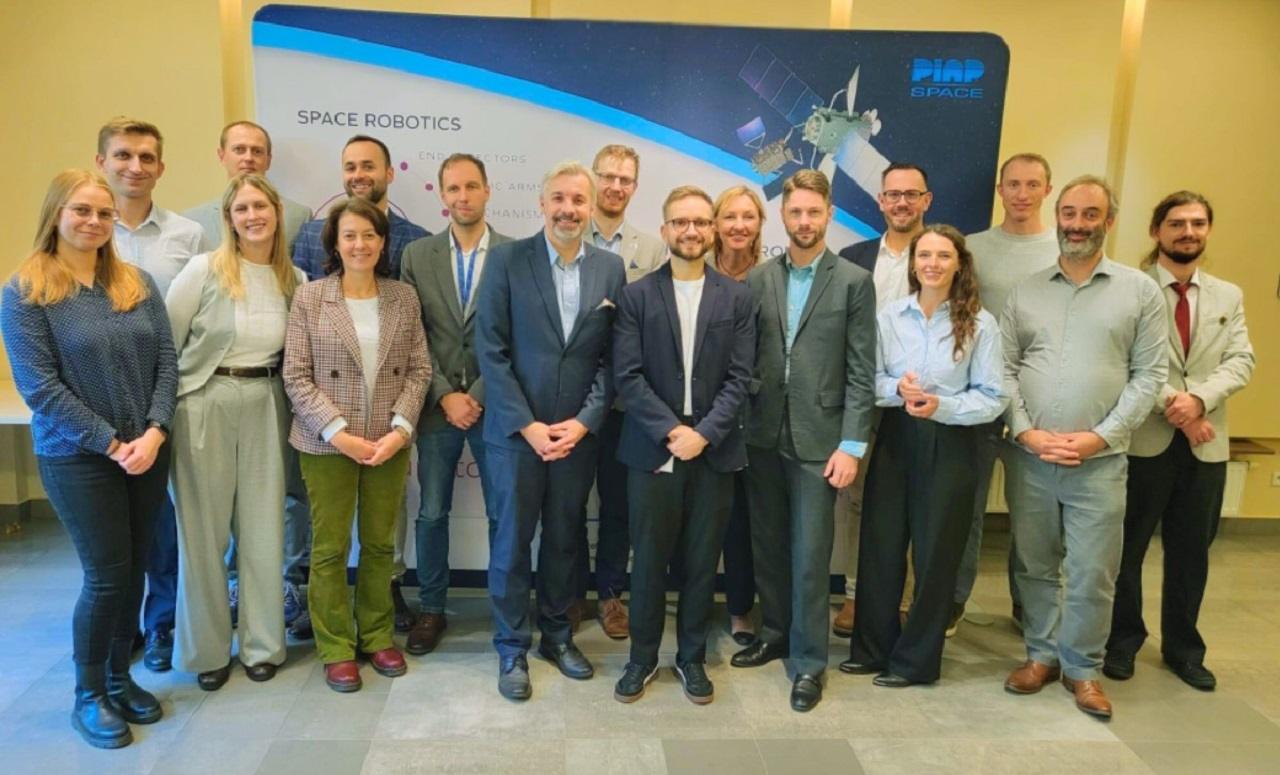IT recruitment Eastern Europe has become a strategic focus for many international companies seeking to expand their tech teams efficiently and cost-effectively. The region offers a wealth of talented software developers Eastern Europe and a vibrant tech talent Eastern Europe pool, making it an attractive hub for IT staffing Eastern Europe initiatives. This article explores the landscape of IT recruitment in Eastern Europe, providing a comprehensive guide for organizations interested in leveraging this dynamic market for their IT jobs Eastern Europe requirements.
Overview of Eastern Europe’s IT Landscape
Eastern Europe has established itself as a significant player in the global IT industry, driven by a robust educational system, a strong emphasis on STEM fields, and a culture that fosters technological innovation. Countries such as Poland, Ukraine, Romania, and Bulgaria have become focal points for IT recruitment Eastern Europe. These nations boast a large number of software developers Eastern Europe who possess high technical skills, fluency in English, and a proactive approach to problem-solving. The region’s IT landscape is characterized by a rapidly growing startup ecosystem, an increasing number of tech hubs, and a thriving outsourcing industry. Companies from around the world are increasingly turning to Eastern Europe to fill their IT positions due to the high quality of talent, competitive salaries, and the region’s strategic geographical location, which allows for effective collaboration across time zones. The region also benefits from a growing number of tech universities and training programs that continuously supply fresh talent to the market, ensuring a steady pipeline of skilled professionals ready to meet the demands of global technology companies.
Country-by-Country Analysis
Each country within Eastern Europe offers unique advantages for IT recruitment Eastern Europe. Poland, for example, is renowned for its large pool of software developers Eastern Europe, with over 300,000 IT professionals actively engaged in the industry. The country boasts a mature tech ecosystem, supported by numerous tech parks and innovation hubs, making it an ideal destination for IT staffing Eastern Europe. Ukraine has gained a reputation for exceptionally talented software developers Eastern Europe, often recognized for their high-quality code and problem-solving skills. The country has a thriving outsourcing industry, with many companies offering specialized IT staffing Eastern Europe services. Romania is another key player, with a rapidly expanding tech sector driven by government incentives and a strong educational system focusing on computer science and engineering. Bulgaria, although smaller, has a competitive IT market with a growing number of startups and tech companies, making it an attractive option for companies seeking cost-effective IT staffing Eastern Europe. Each of these countries offers distinct advantages, and organizations should consider factors such as language, cultural compatibility, and legal frameworks when planning their recruitment strategies.
Cost-Benefit Analysis of Hiring in Eastern Europe
One of the main reasons companies turn to Eastern Europe for IT recruitment is the cost advantage. Salaries for software developers Eastern Europe are significantly lower than those in Western Europe, yet the quality of talent remains high. For example, the average annual salary for a software developer in Poland is approximately 20-30% lower than in Germany or the UK. This cost saving allows companies to expand their tech teams without compromising on skill levels, providing a competitive edge in the global market. Additionally, the region offers excellent value for money in terms of infrastructure, training, and ongoing professional development. The lower operational costs associated with IT staffing Eastern Europe enable organizations to allocate budgets to other strategic initiatives, such as product development or marketing. Moreover, the favorable currency exchange rates and tax incentives in some countries further enhance the cost benefits. However, it is essential to weigh these advantages against potential challenges such as language barriers, time zone differences, and legal complexities, which are discussed in subsequent sections.
Cultural Considerations in Recruitment
Understanding the cultural landscape of Eastern Europe is crucial for successful IT recruitment Eastern Europe. The region has a rich history of technological innovation and values education, problem-solving, and adaptability. Many countries have a culture that emphasizes meticulous work ethic, technical excellence, and continuous learning, which aligns well with the demands of global tech companies. However, cultural differences can also influence communication styles, workplace expectations, and management approaches. For instance, some Eastern European cultures tend to be more formal and hierarchical, which may require adjustments in leadership styles for international teams. Building cultural awareness and fostering an inclusive environment can significantly enhance collaboration and team cohesion. Companies should consider cultural training and team-building activities to bridge gaps and ensure a harmonious working relationship. Additionally, understanding local customs and holidays can improve recruitment success by respecting regional traditions and avoiding scheduling conflicts.
Language Proficiency and Communication
Language proficiency is a key factor in the success of IT recruitment Eastern Europe. Many software developers Eastern Europe are fluent in English, especially those working in outsourcing and nearshore projects, where English is often the primary language of communication. In countries like Poland, Ukraine, and Romania, a significant percentage of IT professionals hold certifications or degrees that include English language instruction, making communication smooth and effective. However, it is essential for organizations to assess language skills during the recruitment process and consider ongoing language training if necessary. Effective communication minimizes misunderstandings, accelerates project timelines, and fosters collaboration in multicultural teams. Additionally, leveraging communication tools such as Slack, MS Teams, and project management platforms can mitigate language barriers, ensuring seamless integration into global teams. Clear documentation, regular check-ins, and cultural sensitivity training further contribute to successful remote and hybrid work models.
Time Zone Advantages for Global Teams
Eastern Europe’s geographical position offers significant time zone advantages for global teams. Countries like Poland, Romania, and Ukraine are situated in a time zone that overlaps conveniently with both Western Europe and parts of Asia, enabling real-time communication with clients and teams across different continents. This overlap allows for efficient project management, quick problem resolution, and continuous development cycles without significant delays. For organizations operating in North America, Eastern European teams can work during overlapping hours, providing near 24-hour productivity cycles and faster turnaround times. The time zone advantage also supports agile development methodologies, enabling daily stand-ups, sprint planning, and sprint reviews across multiple regions. Moreover, this geographical positioning reduces the need for late-night meetings, which can improve employee satisfaction and work-life balance. Companies should consider scheduling strategies that leverage these time zone benefits to optimize productivity and maintain effective communication channels.
Legal and Compliance Aspects
Engaging in IT recruitment Eastern Europe requires a thorough understanding of the legal and compliance landscape. Each country has its own regulations concerning employment contracts, data protection, intellectual property rights, and tax obligations. For example, GDPR compliance is mandatory when handling personal data of EU citizens, which includes many Eastern European countries like Poland, Romania, and Bulgaria. Organizations must ensure their contracts conform to local labor laws, which may specify working hours, termination procedures, and employee rights. Additionally, companies should consider the implications of hiring freelance contractors versus full-time employees, as legal classifications can vary across jurisdictions. Working with local legal experts, recruitment agencies, or HR consultants can help navigate these complexities, ensuring compliance and minimizing legal risks. Furthermore, understanding visa regulations and work permit requirements is essential for international recruitment efforts, especially when onboarding remote workers or relocating employees. Proper legal planning and adherence to local laws are vital for building sustainable and compliant IT staffing strategies in Eastern Europe.
Frequently Asked Questions
Which Eastern European countries are leading in IT talent?
Poland, Ukraine, Romania, and Bulgaria are the top contenders when it comes to IT talent in Eastern Europe. Poland boasts a large pool of skilled software developers with a strong focus on innovation and software engineering. Ukraine is renowned for its highly talented software developers, particularly in fields like cybersecurity, AI, and blockchain technology. Romania has a rapidly growing tech sector supported by universities and government incentives, making it an attractive destination for IT staffing Eastern Europe. Bulgaria, known for its cost-effective solutions, has an emerging tech scene with a focus on startups and IT services. These countries offer a combination of high-quality talent, competitive salaries, and strategic geographical positioning, making them the leaders in the region’s IT industry.
What are the challenges of cross-border IT recruitment?
Cross-border IT recruitment presents several challenges, including language barriers, cultural differences, and legal complexities. Language proficiency varies across countries, and misunderstandings can hinder communication and project success. Cultural differences may influence work styles, expectations, and management approaches, requiring organizations to invest in cultural training and onboarding processes. Legal and regulatory issues, such as employment laws, tax obligations, and data protection regulations, can complicate hiring and onboarding processes. Time zone differences, although advantageous in some cases, may also pose scheduling challenges. Additionally, logistical issues related to remote onboarding and payroll management need to be carefully addressed. Overcoming these challenges requires strategic planning, local expertise, and effective communication channels to ensure a seamless recruitment process and ongoing collaboration.
How do salaries in Eastern Europe compare to Western Europe?
Salaries for IT professionals in Eastern Europe are generally lower than those in Western Europe, often by 20-50%, depending on the country and skill level. For instance, a software developer in Poland or Romania earns significantly less than their counterparts in Germany or France. This salary gap is a primary driver for companies seeking cost-effective IT staffing Eastern Europe, as they can access high-quality talent at a fraction of the cost. Despite lower salaries, the level of technical expertise and professionalism remains comparable to Western standards, making Eastern Europe a strategic choice for outsourcing, nearshoring, and establishing dedicated development centers. However, organizations should also consider factors like employee benefits, taxes, and legal compliance when evaluating total compensation packages to ensure competitiveness and compliance.









